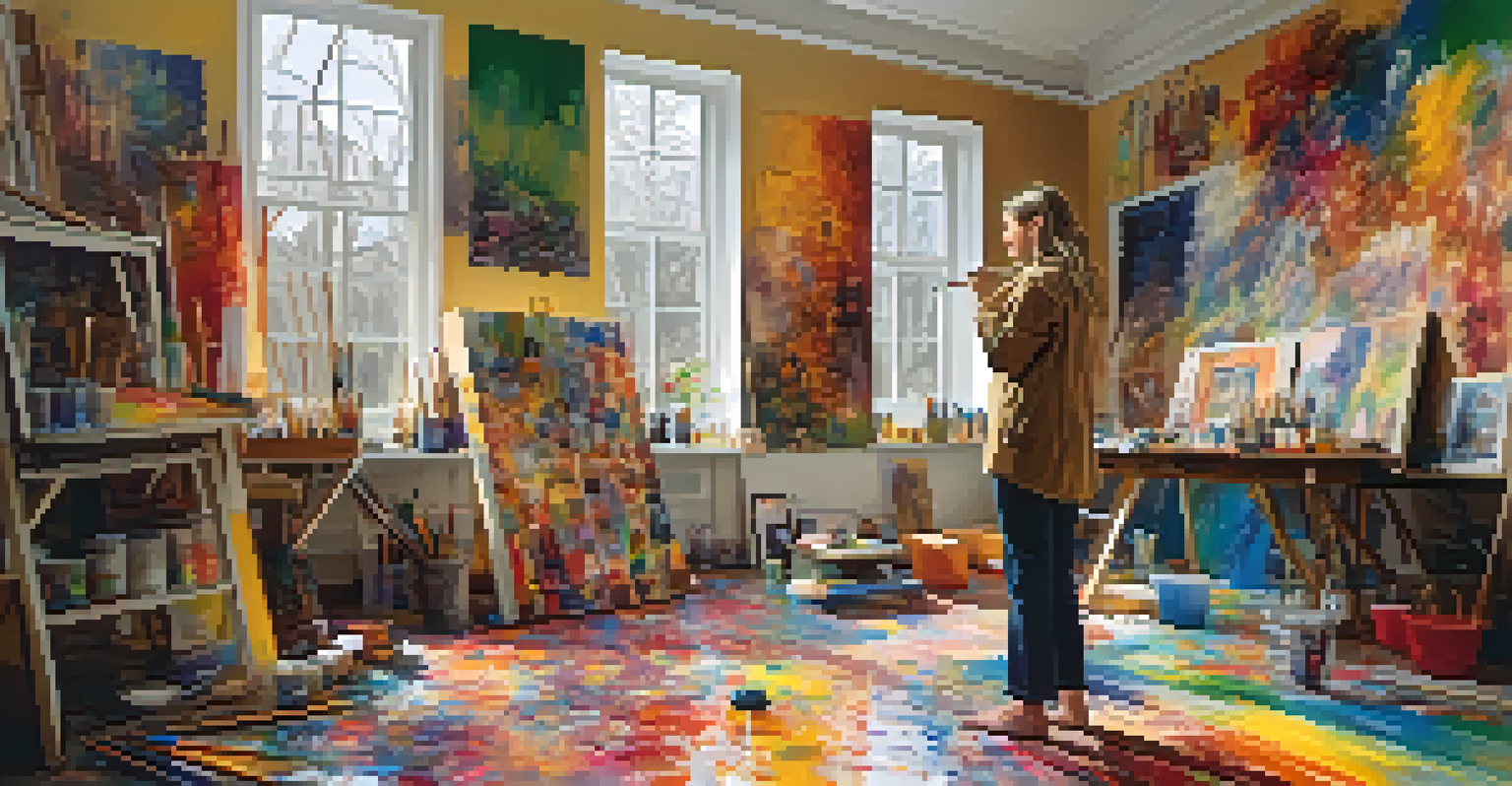Cultural Context: How Societies View Altered States

Understanding Altered States: A Global Overview
Altered states of consciousness are experiences that differ from normal waking perception. They can arise from various sources, including meditation, drug use, and sleep. Different cultures have unique interpretations and values attached to these experiences, shaping how they are perceived and integrated into societal norms.
Altered states of consciousness are not merely subjective experiences; they can provide profound insights into human nature and the universe.
For instance, in many Indigenous cultures, altered states are often seen as sacred journeys. They are approached with respect and are often linked to spirituality, healing, or communal bonding. This contrasts sharply with more industrialized societies, where such states may be stigmatized or associated with escapism.
Understanding these cultural differences helps us appreciate the richness of human experience. It also encourages a broader conversation about mental health, spirituality, and the diverse ways people seek meaning in their lives.
Historical Perspectives on Altered States
Throughout history, altered states have played significant roles in various societies. Ancient civilizations often viewed these experiences as gateways to the divine or as methods for gaining wisdom. For example, the Greeks used intoxicants in rituals, while the shamans of Siberia engaged in trance-like states for healing practices.

As societies evolved, some cultures embraced these states, while others began to fear them. The Renaissance, for instance, saw a resurgence in the exploration of altered states through art and philosophy. However, the Age of Enlightenment shifted the focus towards rationalism, often dismissing such experiences as mere superstition.
Cultural Views on Altered States
Different cultures interpret altered states uniquely, influencing their acceptance and integration into societal norms.
These historical narratives highlight the ebb and flow of societal attitudes towards altered states. They remind us that our contemporary views are part of a larger continuum, shaped by past beliefs and practices.
Contemporary Views: Acceptance vs. Stigmatization
In today's world, some cultures embrace altered states as tools for personal growth, while others still view them with skepticism. For instance, the rise of mindfulness and meditation practices in Western societies has led to a newfound appreciation for altered states as pathways to mental well-being. This acceptance marks a shift in how these experiences are perceived.
Art is the most beautiful of all lies; it is also the most truthful of all statements, for it reflects the altered states of the human spirit.
Conversely, in many settings, particularly where substance abuse is a concern, altered states may still carry a negative stigma. This can lead to misunderstandings about the therapeutic potentials of certain practices, such as ayahuasca ceremonies or psilocybin therapy, which have roots in ancient traditions yet are often viewed through a contemporary lens of caution.
Navigating these contrasting perspectives is crucial, as it affects both individual experiences and broader public policies regarding mental health and drug use.
Spirituality and Altered States: A Sacred Connection
For many cultures, altered states are intertwined with spiritual practices. They are often viewed as opportunities to connect with a higher power or to explore the inner self. In Hinduism, for instance, meditation is a key practice that leads to altered states, facilitating deeper spiritual insight and connection.
Similarly, in Native American traditions, rituals involving altered states are used for guidance and healing. These practices are not merely recreational but are considered essential for maintaining balance and harmony within the community.
Historical Shifts in Perception
Throughout history, altered states have been viewed variably, from sacred practices to stigmatized experiences, reflecting changing societal attitudes.
This sacred connection highlights an important aspect of altered states: they can foster a sense of belonging and purpose. Understanding this relationship encourages a more compassionate view of altered states within our diverse global community.
Psychological Insights: Exploring the Mind
Psychological research has begun to uncover the benefits of altered states for mental health. Techniques such as guided imagery, breathwork, and certain psychedelics are being studied for their potential to alleviate conditions like depression and PTSD. This scientific interest often intersects with cultural practices that have long valued these experiences.
For example, the therapeutic use of psychedelics in clinical settings echoes Indigenous practices where these substances are used for healing. This convergence of traditional knowledge and modern science highlights the importance of cultural context in understanding altered states.
By acknowledging both psychological research and cultural practices, we can foster a more holistic approach to mental health care that respects diverse perspectives.
Art and Altered States: Creative Expressions
Art has long been a medium through which altered states are expressed and explored. Many artists, from Vincent van Gogh to the abstract expressionists, have drawn inspiration from altered states, using their creativity to communicate experiences that transcend ordinary perception. This interplay between art and altered states reveals how deeply intertwined these concepts are in human expression.
In various cultures, art is often used as a tool to facilitate altered states. For example, in African tribal rituals, music and dance create a communal atmosphere that encourages participants to enter trance states, fostering both creativity and connection.
Modern Acceptance and Research
Contemporary interest in mental health has led to a growing acceptance of altered states as tools for personal growth and therapeutic benefits.
This connection between altered states and artistic expression underscores the importance of creativity in understanding and navigating human experiences. It invites us to consider how altered states can serve as catalysts for innovation and emotional exploration.
Future Perspectives: Evolving Cultural Understandings
As societies continue to evolve, so too will their perspectives on altered states. The growing interest in mental health awareness and holistic approaches may lead to a more favorable view of these experiences. This evolution could foster greater acceptance of practices that promote well-being through altered states, such as meditation, breathwork, and even psychedelic therapy.
Moreover, globalization and cultural exchange will likely influence how societies view altered states. As people learn from one another's traditions, there is potential for a broader, more integrative understanding that respects cultural heritage while embracing modern insights.

Ultimately, the future of altered states in cultural contexts will hinge on dialogue and understanding. By fostering conversations that bridge past and present beliefs, we can cultivate a more inclusive society that values diverse experiences.